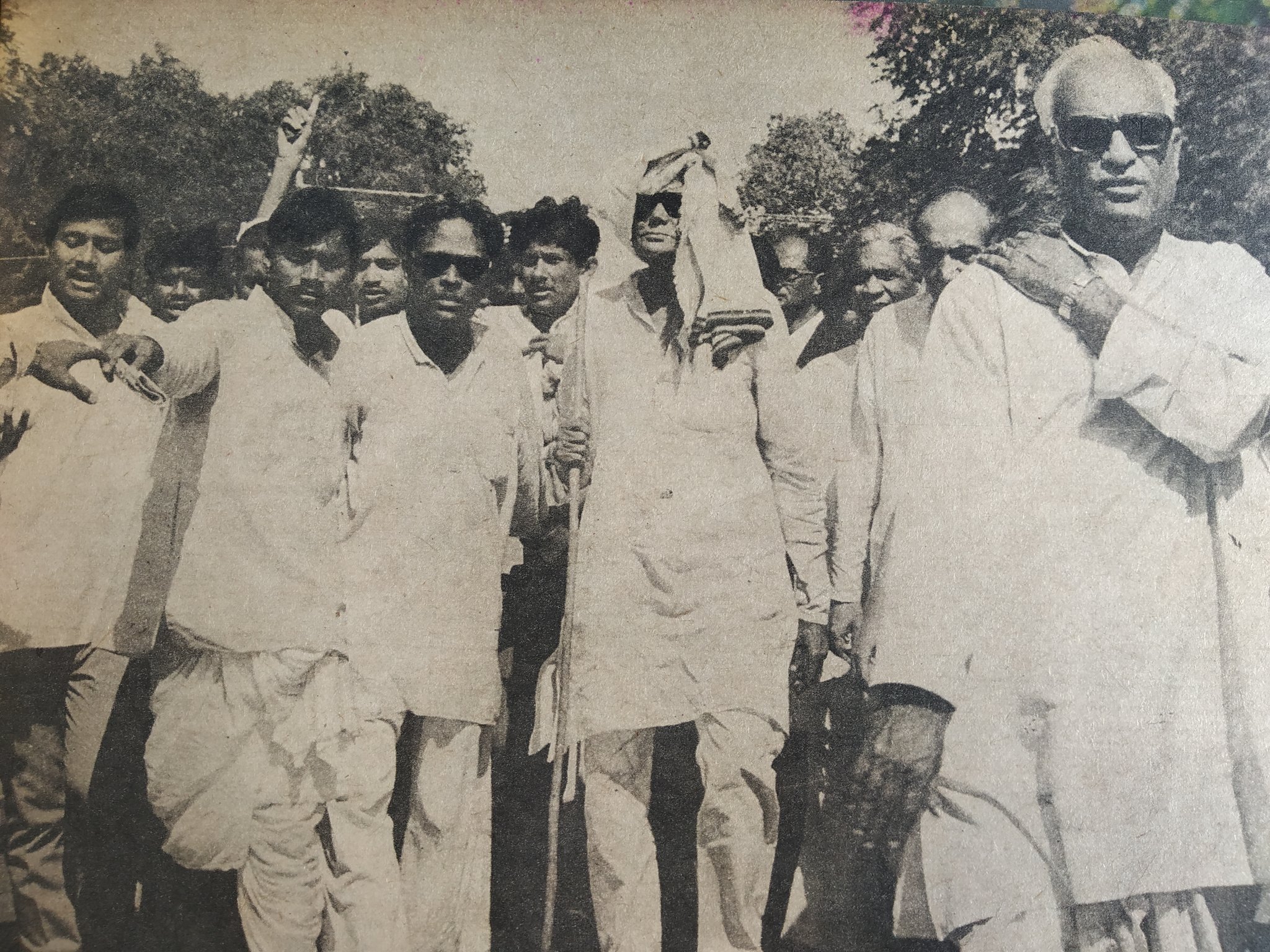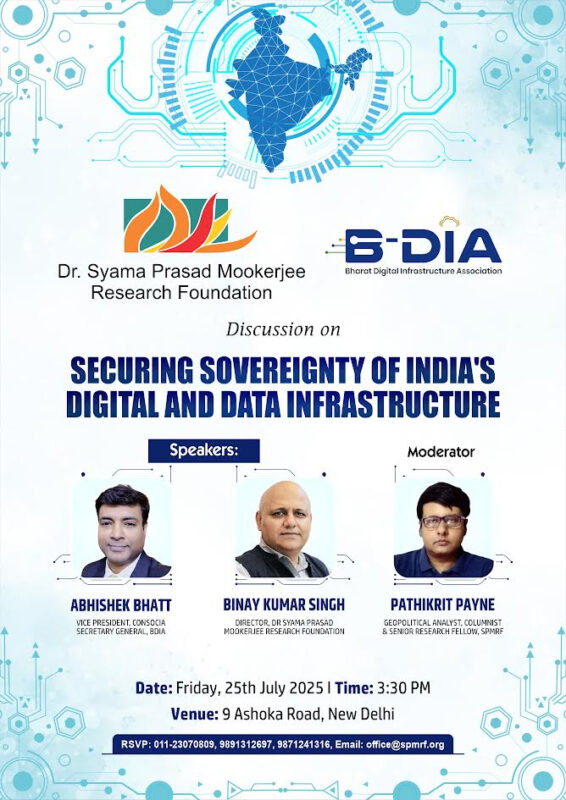How Jayaprakash Narayan’s resistance to the Emergency, backed by the RSS and later carried forward by the BJP, reshaped India’s political destiny
History remembers dates not only for what happened on them but for how nations responded. For India, June 25, 1975, stands as a day of rupture — a moment when the world’s largest democracy was hijacked under the guise of national stability. It was on this day that Prime Minister Indira Gandhi declared a national emergency, suspending civil liberties, arresting opposition leaders, and censoring the press. But just as significantly, it is the day that sparked a people’s resistance movement led by one of the most morally uncompromising figures in Indian politics: Jayaprakash Narayan, or JP.
JP’s name is etched in the conscience of our republic not only for what he stood against but for the alternative vision of democracy he offered — one rooted in ethics, decentralization, and mass participation. His fight during the Emergency is often remembered but not fully appreciated, especially in how it reshaped Indian politics, laid the foundation for the rise of the Bhartiya Janata Party (BJP), and even altered the institutional DNA of Indian democracy.
A Revolutionary Mind with a Democratic Soul
Born on 11 October 1902 in the village of Sitab Diara in Bihar, JP was shaped by simplicity and idealism from the start. He studied sociology and political science in the United States, where he was exposed to both Marxist thought and American democratic traditions. But upon returning to India, his ideological compass swung toward Gandhian socialism.
JP became a key figure in the Indian freedom struggle. He joined the Congress Socialist Party in the 1930s and later played a prominent role in the 1942 Quit India Movement, enduring jail time for his activism. However, post-independence, he stepped away from electoral politics, focusing instead on constructive social work, such as the Bhoodan movement led by Vinoba Bhave.
It was only when the post-independence state began to show signs of autocratic drift that JP returned to public life. And what he returned to was a country in political and economic disarray by the early 1970s — one where popular discontent was boiling, corruption rampant, and democratic accountability absent.
The Slide Toward Authoritarianism
The tipping point came with the Allahabad High Court verdict on June 12, 1975, which found Prime Minister Indira Gandhi guilty of electoral malpractice and invalidated her election to the Lok Sabha. Instead of stepping down, Indira Gandhi chose confrontation over compliance. Thirteen days later, an Emergency was declared under Article 352 of the Constitution.
This act turned a democratic republic into an administrative autocracy for 21 months. Citizens’ rights were suspended, opposition leaders jailed, newspapers gagged, and judicial independence systematically eroded. Even basic constitutional guarantees were held in abeyance.
But the story of June 25 is not just a tale of democratic betrayal; it is also the story of courageous resistance.
Jayaprakash Narayan’s Moral Revolution
JP stepped forward with his now-iconic call for “Sampoorna Kranti” — Total Revolution. This wasn’t merely political opposition; it was a comprehensive call for ethical, social, and economic transformation. He didn’t ask people to just vote out a party; he asked them to rethink how power, governance, and justice were understood in a modern India.
His movement found traction across social groups: students, farmers, workers, and professionals. What made it truly formidable was the broad ideological coalition he managed to forge. And central to this coalition was a force often derided but whose grassroots strength made the resistance operationally possible: the Rastriya Swayamsevak Sangh (RSS).
RSS: The Silent Spine of the Anti-Emergency Movement
Much of mainstream discourse has minimized the role played by the RSS during the Emergency, yet the historical record is unambiguous. The RSS emerged as the largest and most disciplined underground network in the country during those 21 months.
While thousands of Swayam sevaks were arrested, many others worked clandestinely to distribute banned literature, organize protests, and maintain morale among the public and opposition leaders. Their decentralized yet coordinated structure made them one of the most effective resistance networks. In fact, JP himself publicly praised the RSS, saying that had it not been for their organizational support, the anti-Emergency struggle could never have sustained itself at that scale.
This alliance between JP’s moral idealism and the RSS’s disciplined nationalism forged a lasting political alignment that continues to influence Indian politics today.
From Resistance to Rebirth: The Political Legacy of the Emergency
When the Emergency was lifted in early 1977 and elections were held, the people delivered their verdict — and it was scathing. The Congress Party was decimated, and for the first time since independence, a non-Congress coalition government came to power under the Janata Party.
This government, composed of socialists, nationalists, former Congress members, and RSS affiliates, was fragile and short-lived. Yet it marked a turning point. It proved that Indians valued freedom over fear and democracy over dictatorship. It also demonstrated the power of coalition politics grounded in ideological commitment rather than personal gain.
While the Janata experiment faltered, it birthed a new political consciousness — one in which the Bhartiya Janata Party (BJP) would take root and grow.
BJP and the Inheritance of JP’s Vision
Many leaders of the BJP today, including Prime Minister Narendra Modi, acknowledge their ideological and moral inheritance from JP’s movement. While the BJP and JP had differences in method and worldview, there’s an undeniable overlap in values: clean governance, national pride, decentralization, and moral politics.
JP’s appeal to inner conscience and ethical reform finds echoes in the BJP’s narrative of “Sabka Saath, Sabka Vikas” and its emphasis on transparency, anti-corruption, and nation-first policies. Though political circumstances differ, the BJP has often presented itself as the natural torchbearer of the anti-Emergency legacy, framing its rise not just in terms of electoral strength but also ideological continuity.
The Constitutional Lessons and the People’s Verdict
The Emergency also forced institutional introspection. One of its most lasting impacts was the 44th Constitutional Amendment, which introduced safeguards to prevent future misuse of emergency powers. It reinforced the notion that individual liberty and democratic oversight must never be sacrificed at the altar of political convenience.
But laws alone are not enough. The most powerful lesson of the Emergency was that people matter more than paperwork. The Indian voter — largely rural, often poor, but politically astute — overturned authoritarianism with the might of the ballot box. That remains one of the most remarkable democratic uprisings in the world.
Why June 25 Still Matters
Forty-nine years have passed since that fateful day. But June 25 is not merely a date in the calendar of Indian politics. It is a reminder of what happens when democratic complacency meets political ambition. But it is also a symbol of hope that even in the darkest hour, the Indian spirit does not bow.
Today, as the country confronts new challenges in global geopolitics, digital freedoms, and the culture of polarization, the legacy of Jayaprakash Narayan and the resistance of 1975 offers moral clarity. Democracy must not be reduced to just elections; it must be an everyday commitment to truth, transparency, and the welfare of the last Indian.
Loknayak Lives On
JP passed away in 1979, but his legacy survives not just in statues or memorials but in the everyday struggles of those who believe that politics is a service, not a profession. His belief in ethical politics, civic responsibility, and national renewal continues to inspire a spectrum of Indian thought, from grassroots movements to governance ideologies.
As we approach the 50th anniversary of that fateful night in 2025, the onus is on all of us — citizens, politicians, students, and thinkers — to remember, reflect, and rebuild. JP’s dream of a just, democratic, and self-reliant India is not a closed chapter; it is a living vision.
June 25 is not just a date. It is a democratic duty.
(The views expressed are the author's own and do not necessarily reflect the position of the organisation)


